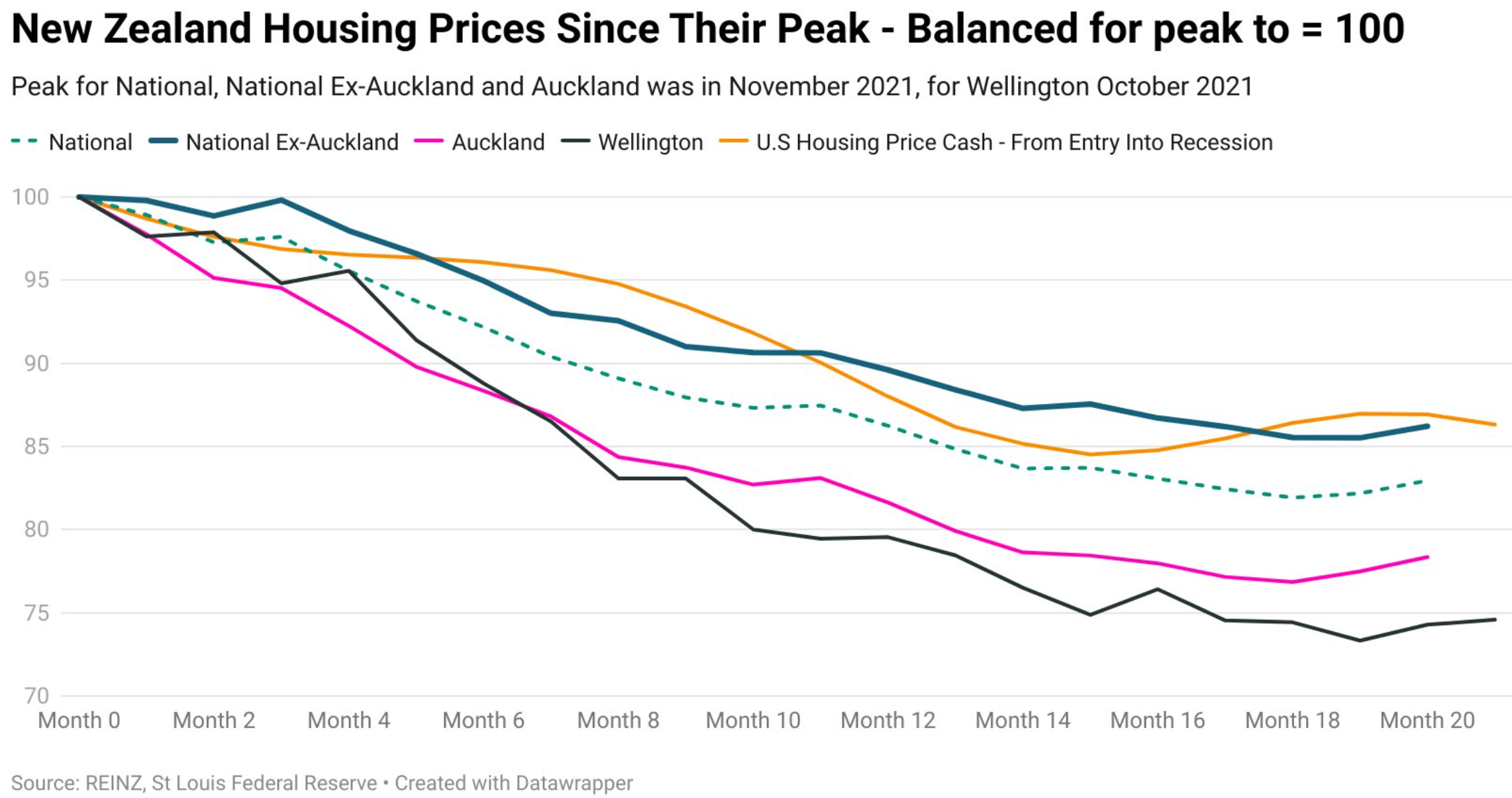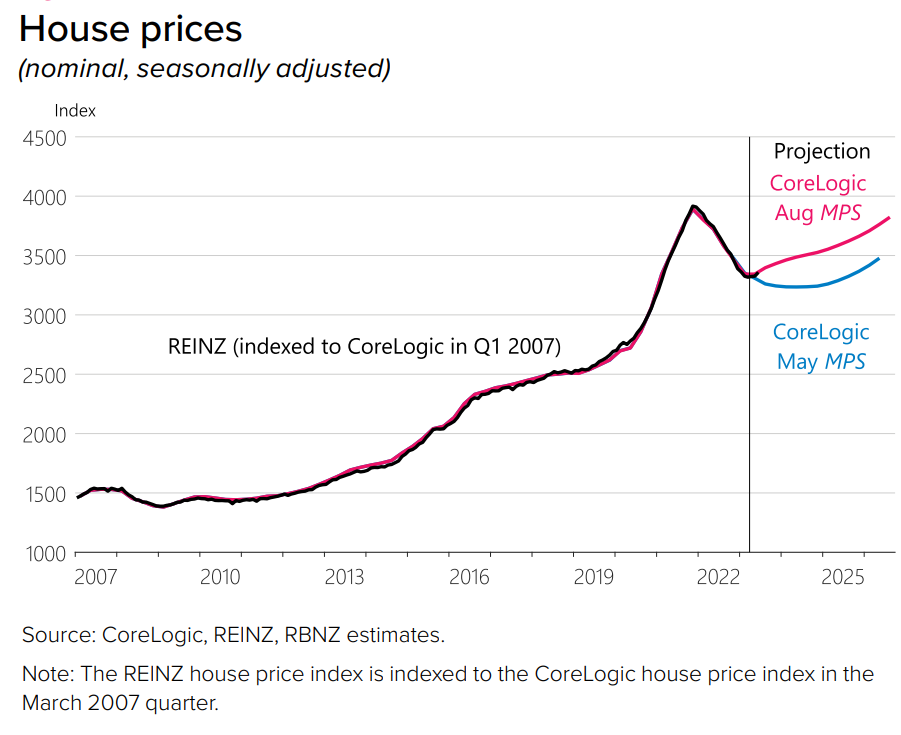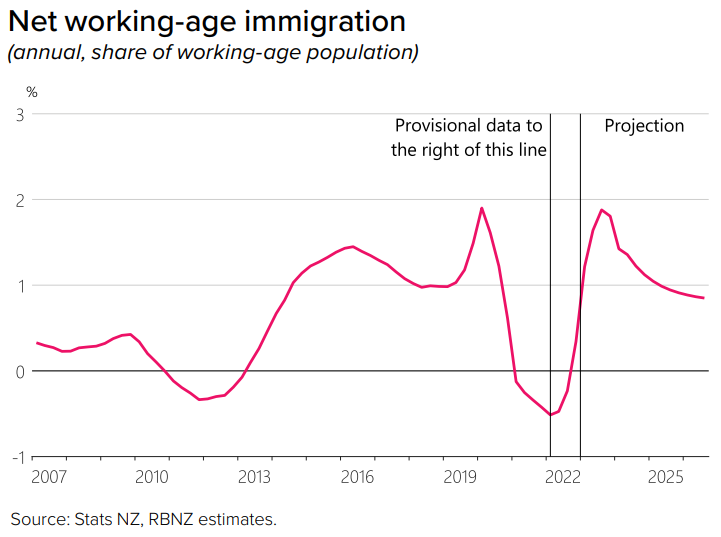New Zealand has experienced one of the world’s largest house price crashes following the Reserve Bank’s 5.25% increase in the official cash rate.
House prices have fallen by 17.1% from their November 2021 peak, according to the Real Estate Institute, with with values in New Zealand’s largest city, Auckland, tanking by 21.6%:

Source: Tarric Brooker
The Reserve Bank had previously forecast that New Zealand house prices would fall by 23% peak-to-trough.
However, in this week’s Statement of Monetary Policy, the Reserve Bank has called an end to New Zealand’s house price bust, instead tipping a solid rebound:

The Reserve Bank says that this rebound will be driven by “stronger net immigration, alongside a peak in interest rate expectations”.

“The stabilisation in house prices over the June 2023 quarter was earlier than anticipated in the May Statement”, the Reserve Bank notes.
“The rapid return of net immigration, an increase in the number of residents due to the one-off 2021 resident visa, strong employment and nominal wage growth, slower increases in retail mortgage interest rates and a relatively low number of houses available for sale have contributed to this recent stabilisation in house prices”.
“Consequently, we assume no further falls in house prices”.
“We assume house prices grow gradually over the next year before increasing at a slightly faster pace in nominal terms over the remainder of the projection”.
Much like in Australia and Canada, “New Zealand is on track to experience its largest annual net immigration of the last century”, the Reserve Bank notes.
This record immigration will drive New Zealand house prices and rents higher, making housing less affordable.

